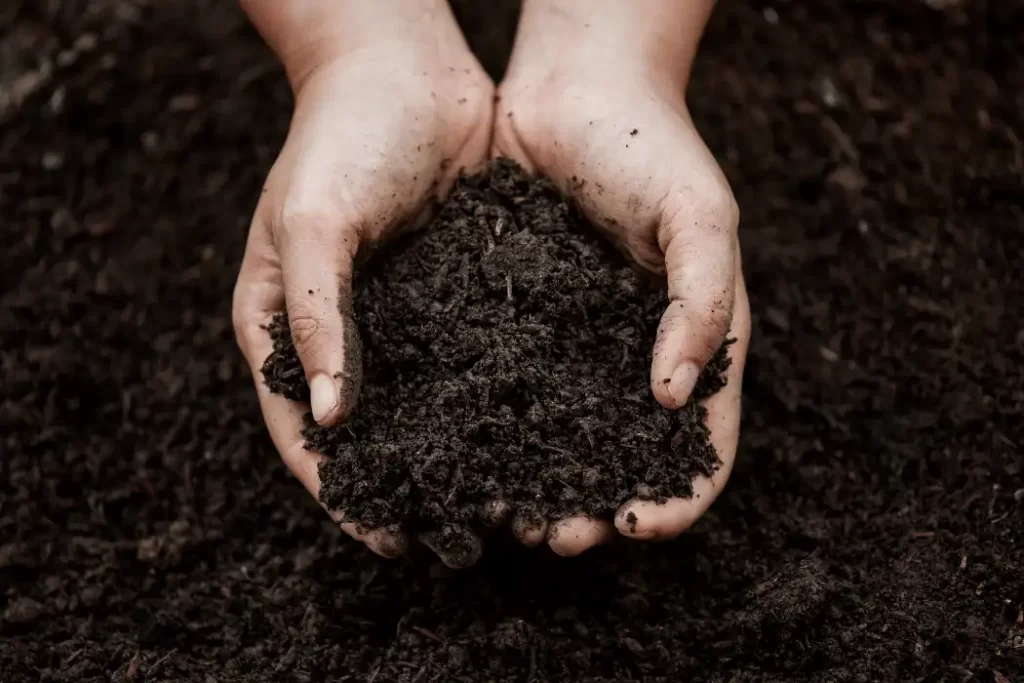In the world of agriculture, there exists a precious resource that holds the key to sustainable farming practices – alluvial soil. Often referred to as “nature’s gift,” this unique soil type plays a vital role in nurturing crops and supporting the growth of thriving ecosystems. With its remarkable fertility and versatile characteristics, alluvial soil has become an essential asset for farmers seeking to cultivate in an environmentally-friendly and efficient manner. Serving as a profound source of knowledge, alluvial soil unveils its invaluable role in fostering sustainable farming practices, contributing to environmentally-friendly and efficient agricultural systems. In this blog, we will explore the wonders of alluvial soil, its formation, and the incredible benefits it bestows upon the realm of sustainable agriculture. Join us on this journey as we uncover the secrets of this invaluable natural treasure and how it contributes to a greener, healthier, and more prosperous future for our planet.
What is Alluvial Soil?
Alluvial soil, often referred to as “riverine soil,” is a type of soil formed by the deposition of silt, sand, and clay carried by rivers and streams during periods of flooding. Over time, this sediment accumulates in floodplains and deltas, creating fertile and nutrient-rich soil.
Formation of Alluvial Soil
The formation of alluvial soil is a gradual and ongoing process. When rivers overflow during heavy rainfall or snowmelt, they carry fine particles of sediment along their course. As the flow of water slows down in lower-lying areas, the sediment settles and gets deposited. This repeated cycle of deposition over centuries contributes to the formation of alluvial soil.
Characteristics of Alluvial Soil
Alluvial soil exhibits several key characteristics that make it highly suitable for sustainable farming. It has a fine texture, which promotes good drainage while retaining adequate moisture for plant roots. The soil’s composition varies depending on the region but generally consists of sand, silt, and clay in different proportions, offering a diverse range of nutrients.

Importance of Alluvial Soil in Sustainable Farming
Alluvial soil plays a fundamental role in sustainable farming systems due to its inherent fertility and ability to support a wide variety of crops. Its richness in essential minerals and nutrients enables farmers to cultivate crops with higher yields and nutritional value.
Advantages of Alluvial Soil for Agriculture
- Fertility: Alluvial soil is naturally fertile, reducing the need for excessive chemical fertilizers and promoting organic farming practices.
- Versatility: This soil type is highly versatile and suitable for growing a wide array of crops, from cereals and vegetables to fruits and pulses.
- Moisture Retention: Alluvial soil’s moisture-retentive properties help crops withstand dry spells and contribute to water conservation.
- Easy Cultivation: The fine texture of alluvial soil makes it easy to till and cultivate, saving time and effort for farmers.
- Sustainable Farming: Utilizing alluvial soil in agriculture aligns with sustainable farming practices, fostering a balanced ecosystem.
Challenges and Management of Alluvial Soil
Despite its benefits, alluvial soil is not without its challenges. Erosion, salinity, and soil compaction are some issues that farmers may face. Implementing proper soil management techniques such as contour farming, crop rotation, and intercropping can mitigate these challenges and ensure long-term sustainability.
Best Crops to Grow in Alluvial Soil
- Rice: Alluvial soil’s moisture-retaining capacity makes it ideal for rice cultivation, a staple food for millions.
- Wheat: Wheat thrives in alluvial soil, and its cultivation significantly contributes to global food security.
- Sugarcane: This cash crop prospers in alluvial soil, supporting the sugar industry and related products.
- Cotton: The textile industry benefits from cotton cultivation in regions with alluvial soil.
- Legumes: Peas, lentils, and other leguminous crops find alluvial soil highly suitable, enriching the soil with nitrogen through their roots.
Sustainable Farming Techniques Using Alluvial Soil
- Crop Rotation: Alternating crops in a systematic manner helps maintain soil fertility and reduces the risk of pest infestations.
- Cover Cropping: Planting cover crops during fallow periods prevents soil erosion and adds organic matter to the soil.
- Mulching: Mulching with crop residues or organic matter conserves moisture and suppresses weed growth.
- Agroforestry: Integrating trees with agricultural crops enhances biodiversity and soil health in alluvial farming systems.
Enhancing Soil Fertility in Alluvial Systems
- Composting: Recycling organic waste into compost enriches the soil with essential nutrients.
- Green Manure: Sowing green manure crops and plowing them under adds nitrogen and organic matter to the soil.
- Biofertilizers: Introducing beneficial microorganisms enhances nutrient availability to plants.
Water Management in Alluvial Soil Agriculture
Efficient water management is vital for sustainable farming in alluvial soil regions. Implementing irrigation methods like drip and sprinkler systems optimizes water use, reduces wastage, and ensures uniform distribution to crops.
Organic Farming and Alluvial Soil
Alluvial soil serves as a cornerstone for organic farming, promoting the use of natural practices, minimizing chemical inputs, and maintaining ecosystem balance. Organic farming practices are gaining popularity due to their positive impact on the environment and consumer health.
The Future of Alluvial Soil Farming
As the global population continues to grow, the demand for sustainable agricultural practices will only increase. Alluvial soil’s role in providing a foundation for such practices makes it indispensable for the future of farming. By preserving and nurturing these precious soil resources, we can ensure food security and a healthier planet for generations to come.
Conclusion
Alluvial soil stands as nature’s gift to sustainable farming, offering a fertile and versatile platform for cultivating crops while adhering to eco-friendly practices. Its unique characteristics, coupled with efficient soil management and sustainable farming techniques, make it an indispensable asset in the world of agriculture.
FAQs
- Is alluvial soil suitable for organic farming?
- Yes, alluvial soil is highly conducive to organic farming practices due to its natural fertility and ability to support diverse crops.
- Can alluvial soil be prone to erosion?
- Yes, improper land management can lead to erosion in alluvial soil regions. Implementing erosion control measures can mitigate this issue.
- Which crops require alluvial soil for optimal growth?
- Crops like rice, wheat, sugarcane, cotton, and legumes thrive in alluvial soil environments.
- What sustainable farming techniques work best with alluvial soil?
- Sustainable practices such as crop rotation, cover cropping, agroforestry, and efficient water management are beneficial for alluvial soil farming.
- How does alluvial soil contribute to food security?
- Alluvial soil’s fertility and ability to support high-yield crops contribute significantly to global food security, ensuring an ample food supply for the growing population.


